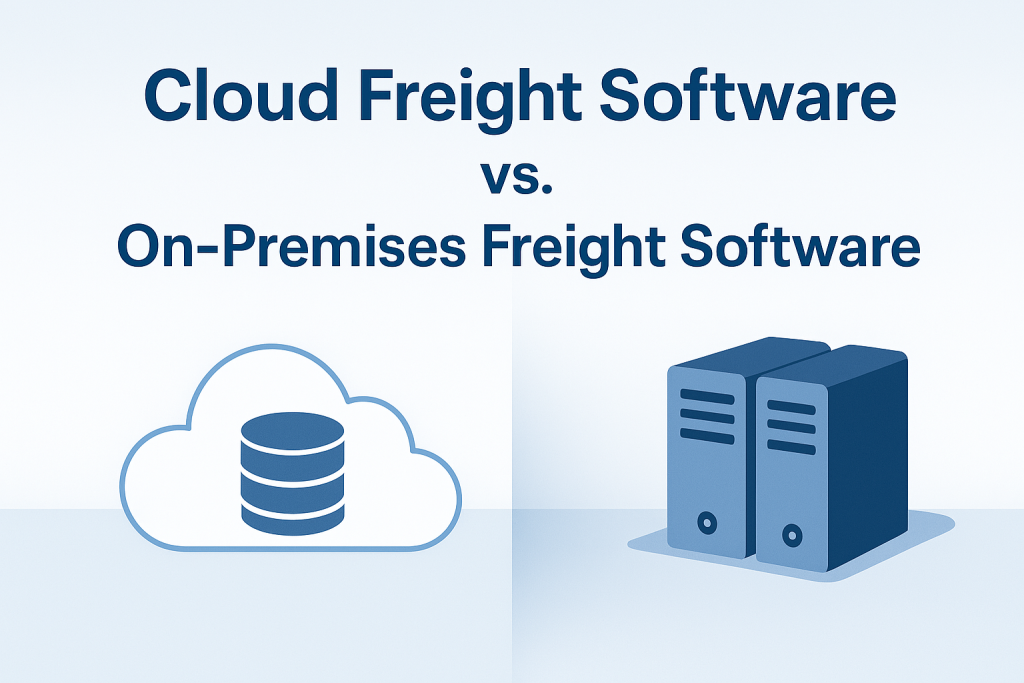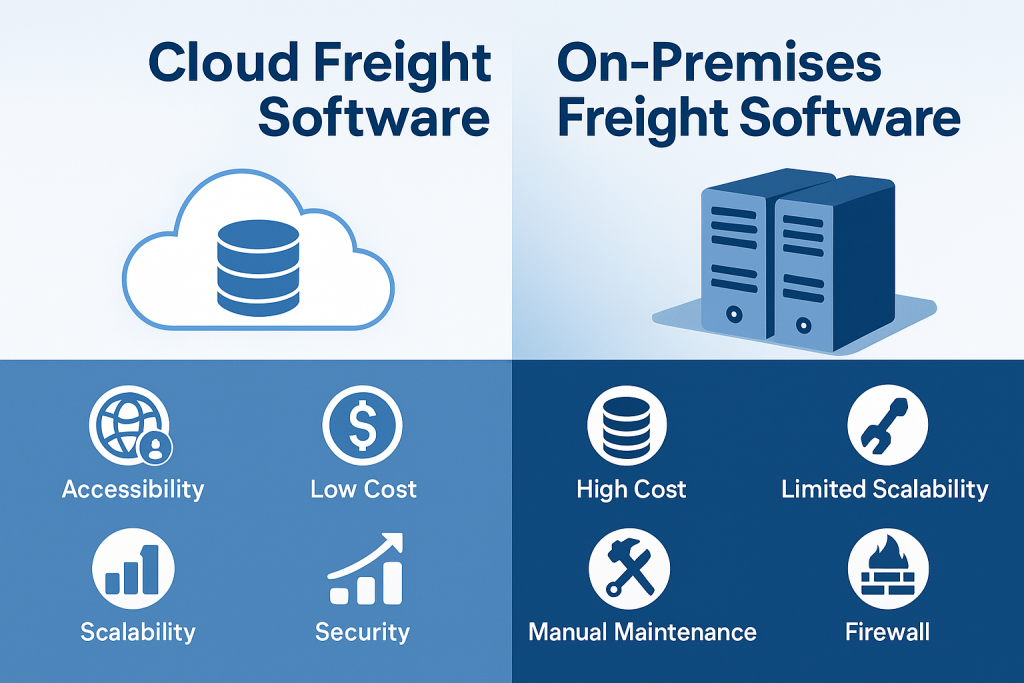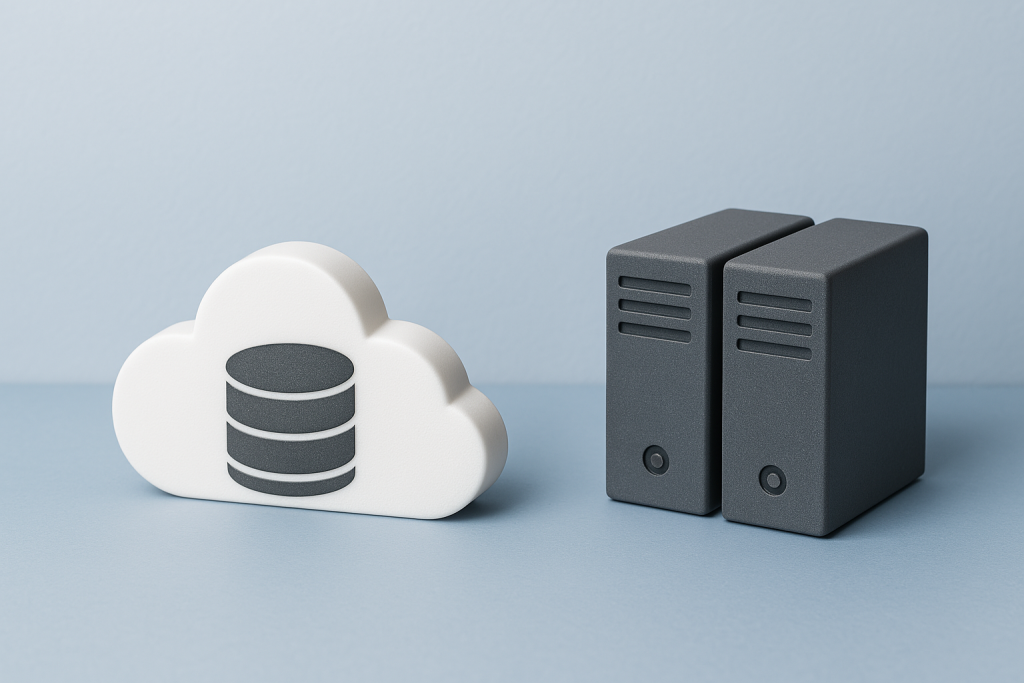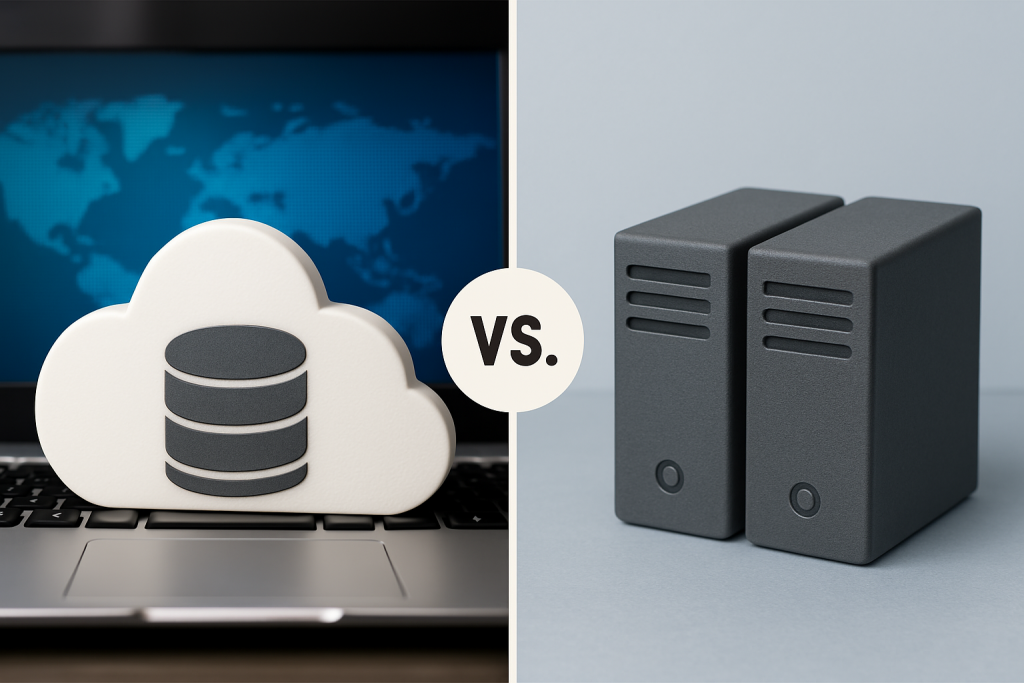Cloud vs. On-Premises Freight Software: Pros, Cons & Security

☁️ What Is Cloud Freight Software?
Cloud freight software is hosted on external servers and accessed via the internet. It doesn’t require local installation and enables freight forwarders to work from anywhere, at any time.
🔹 Example: Linbis provides a fully cloud-based freight management system, allowing you to handle shipments, documentation, and tracking through a centralized, secure online platform.
🖥️ What Is On-Premises Freight Software?
On-premises freight software is installed directly on a company’s internal servers. While it offers total control over infrastructure, it typically involves higher costs, more manual maintenance, and limited accessibility.
🔒 Often preferred by organizations with strict internal IT or compliance requirements.

⚖️ Cloud vs. On-Premises: Feature Comparison
Feature | 🌐 Cloud Freight Software | 🏢 On-Premises Freight Software |
Accessibility | Anywhere, anytime (24/7) | Only from authorized devices or networks |
Upfront Costs | Low (subscription-based) | High (hardware, licenses, IT setup) |
Scalability | Instantly scalable | Limited by physical infrastructure |
Updates | Automatic and frequent | Manual, slower to implement |
Maintenance | Handled by the provider | Requires internal IT resources |
Security | Encryption, certifications, backups | Depends on internal capabilities |
Implementation Time | Quick (days) | Slow (weeks or months) |
🔐 Is Cloud Software Really Secure?
Absolutely — and often more secure than traditional setups.
Cloud freight software Security Benefits:
- End-to-end encryption (in transit and at rest)
- Automatic backups across multiple locations
- Compliance with international standards (e.g., SOC 2, ISO 27001)
- 24/7 monitoring by expert security teams
💡 Linbis uses enterprise-grade infrastructure to keep your data protected, so you can focus on growing your freight business without worrying about cybersecurity.

📈 Why More Logistics Companies Are Moving to the Cloud
Cloud adoption is accelerating in the logistics industry — and for good reason:
- 🌍 Real-time, remote access to operations
- ⚙️ Process automation and workflow efficiency
- 📉 Reduced IT and infrastructure costs
- 🤝 Collaboration across multiple locations
- 📊 Instant access to reports and dashboards
💼 Which One Is Right for Your Business?
Choose Cloud Freight Software (like Linbis) if you:
✅ Want flexibility and access on the go
✅ Prefer lower upfront investment
✅ Need rapid scalability
✅ Value automation and seamless updates
✅ Operate across multiple locations or remotely
Choose On-Premises if you:
🔐 Have internal IT policies that restrict cloud use
🔧 Require full infrastructure control
💸 Have a dedicated IT team and high capital for hardware

🚀 Conclusion: The Smart Move Is to the Cloud
In an industry where agility, transparency, and scalability are vital, cloud freight software is no longer optional — it’s essential.
Linbis Freight Management Software empowers logistics providers to simplify, centralize, and scale their operations through a secure and modern cloud platform.
🎯 Ready to modernize your freight operations?
👉 Request your free Linbis demo today and see how easy it is to move your logistics to the cloud: www.linbis.com
